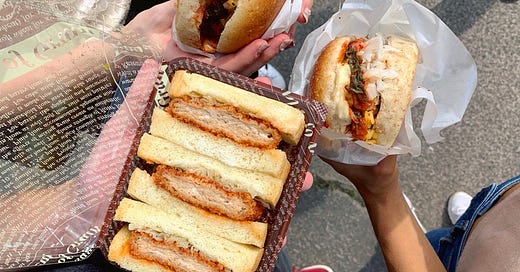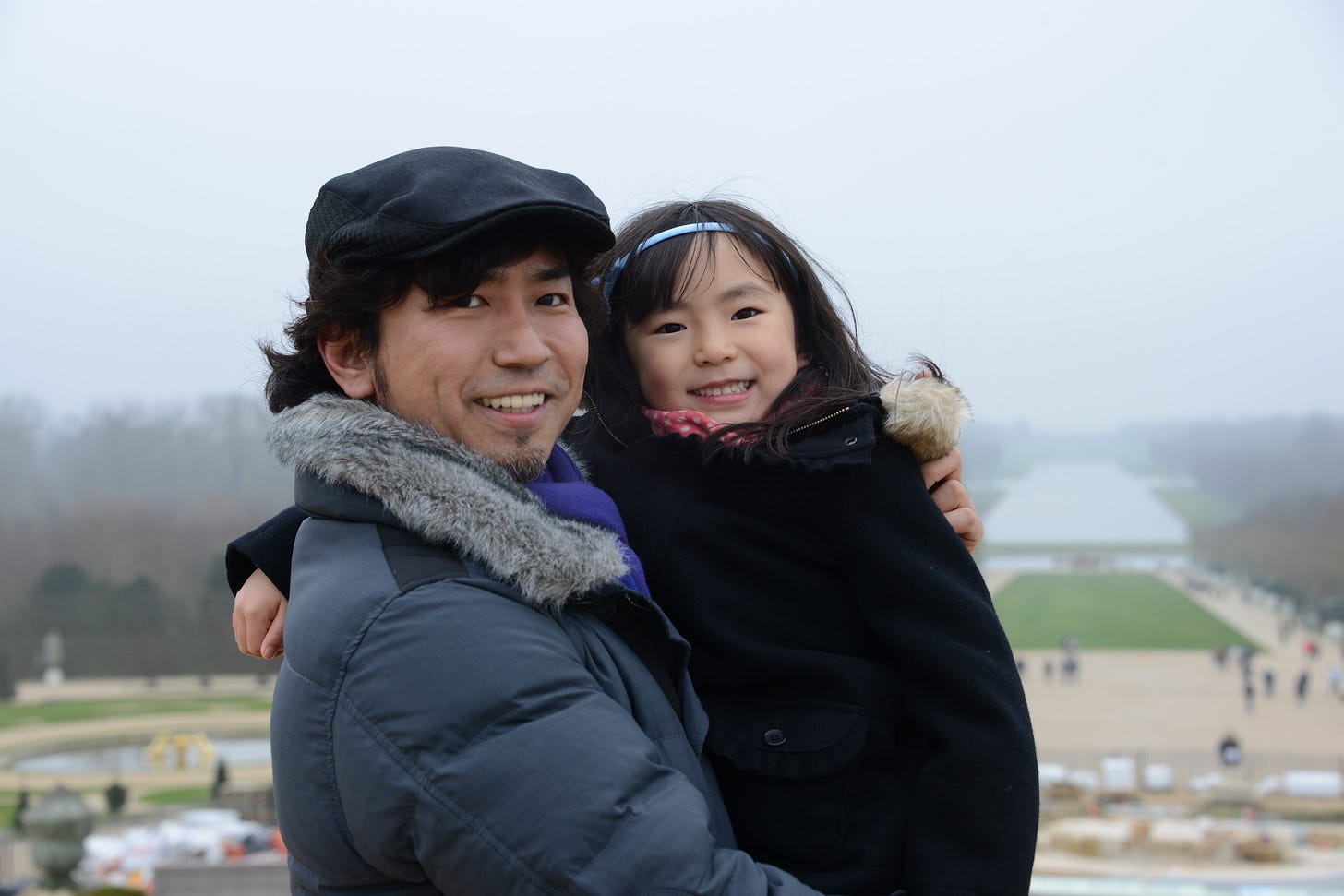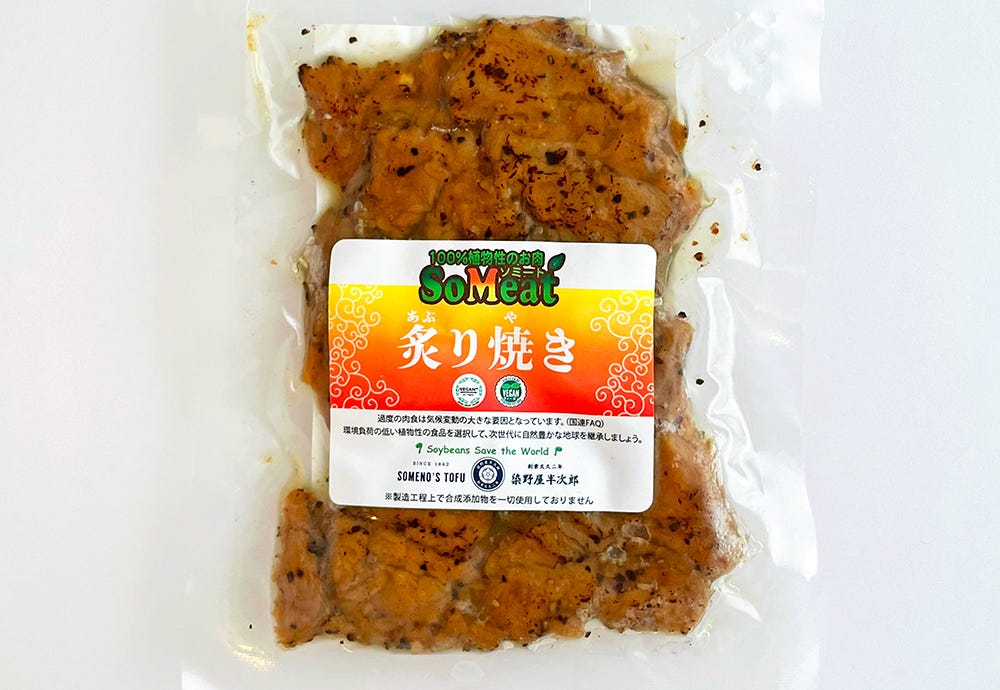Western countries like the UK and the US have dominated the vegan food tech scene for the past couple of decades. Impossible Foods (US), THIS (UK), and Oatly (Sweden) are some companies that have really made a splash.
But what about Japan?
Other than tofu and other soy products, ready-to-eat vegan alternatives in Japan are hard to come by. Most of the vegan alternatives are brought in from other countries, like Denmark’s Naturli’ Foods or Scotland’s Bute Island Sheese.
But, that’s starting to change. There has been a boom in vegan products in just the past couple of years, and there are now more domestic companies making vegan alternatives.
Next Meats, a soy and pea-protein-based meat substitute, has made huge leaps since they launched just last year in 2020. What started as a domestic company has now expanded to Taiwan, Singapore, Hong Kong, and Vietnam. Plus, it has plans to expand to the US, China, India, and parts of Europe very soon.
Another company changing the industry is Somenoya, a tofu manufacturer that has been around since 1862. In recent years, they expanded their product offerings and launched a line of vegan meat products called SoMeat. I sat down with their CEO, Atsuto Ono, to chat about the story behind the brand, sustainability in Japan, and the future of the company.
I first wanted to know what made him decide to branch out into vegan meat.
“It was 2009 when I had my daughter. At that time, I started thinking about the future.”
After her birth, Ono-san started researching online about the environmental situation and felt sorry that his daughter would have to live in a declining world.
“I felt I needed to fix it, or at least try to recover the planet for my daughter. I started thinking about what kind of things I could do. Finally, I found a Meat-Free Monday program that was established that same year, in 2009. I realized that plant protein can help with sustainability because animal agriculture is one of the biggest causes of climate change.
Then, I started lectures for Japanese people [e.g. employees, business owners, industry people, government agencies] because, at that time, there weren't that many people that understood that animal agriculture equals climate change. After one of the lectures, I saw a Facebook post that said, ‘Today’s lecture was great. Mr. Ono is a great lecturer,’ and whatnot. But then underneath that post was a picture of his steak dinner. Therefore, I changed my mind. Information alone is not enough. I need to make alternative meat. I thought since I am a tofu maker, I can make sustainable meat using soybeans.”
They started making alternative meat in 2014 and officially launched the SoMeat product label in 2018. However, the public’s response was not as enthusiastic as he had hoped.
“Until 2019, just before COVID, the sales were really bad for 5-6 years. We were just focused on selling to Japanese vegan or vegetarian people, and that was a really small target. At that time [in 2014], the most important thing was for me to stay vegan. I had watched Forks Over Knives, and after that, I decided to shift to a completely vegan diet.
I needed a tasty alternative meat. So I started it for myself, for my own vegan diet. From 2014 to 2019, it was mainly for me. But since last year, the sales have been getting better. I think COVID influenced it. The sales between 2019 to 2020 increased 384%.”
Since the rise in sales, their target is no longer just vegan or vegetarian people. In February 2021, they launched their plant-based minced meat, which has been particularly popular among non-vegans. However, their most popular product overall is their aburiyaki (grilled) soy product.
We then went into the awareness of veganism, and whether it is growing in Japan.
“I think at the same time as our sales growth, between 2009-2019, nothing changed. But from 1 or 2 years ago, especially among young people, they are starting to learn more about the truth [around environmental impact]. Now, at least once a week I see something on TV about the connection between animal consumption and climate change.
In Ginza, Komeda started a 100% vegan cafe [called KOMEDA is]. I go there almost every week, and I see a lot of young people there. Before, people my age were mainly at vegan events. Nowadays, about half are in their early 20s. Also, last year a young guy around 22 established a vegan association. Since 2019, there has been an increase in vegans and awareness.”
Ono-san also spoke about the connection between COVID-19 and the rise in veganism in Japan.
He noted that Japanese people tend to think of Japan as an island, and foreign countries as other planets. So when something occurs abroad, it feels like it’s happening on another planet. But COVID-19 was a global pandemic, affecting everyone around the world. This has helped Japanese people realize that other issues, like climate change and sustainability, have an impact on Japan as well. It’s not its own island-- it’s connected to the rest of the world.
Looking to the future, Ono-san is working to get into organic farming as well.
“My mission is to make environmentally friendly businesses. SoMeat is just the beginning. From this year, I am also focusing on organic agriculture, which helps reduce climate change. I also want to make our own organic soybeans for our tofu. I started this project 2 months ago.
Alternative meat is important for our future, but organic agriculture may be even more important. It might take 5 or 6 years to get to 100% organic soybeans, and after that, I want to start a forestry business. That is also a crucial crisis in Japan.”
To close out the interview, I asked about the inspiration for this entire venture, his daughter. Now that she’s 12, I was curious to know if she is aware that she is the inspiration for the business, and if so, how she feels about it.
“I think she knows about my ideas. She is now a pescatarian. My wife is also a pescatarian. But she doesn’t like my SoMeat [laughs]. Last Saturday, we went to [the cafe] Komeda Is, where SoMeat is used in their sandwiches. I took them to try it. My wife’s reaction was great, but my daughter was like, ‘I don't like this.’ I was like, ‘Oh come on, this is for you!’”
Don’t worry, Ono-san. Your daughter will come around eventually. In the meantime, the rest of us will keep enjoying your delicious plant-based products.







I definitely have to try this when I'm next in Japan.